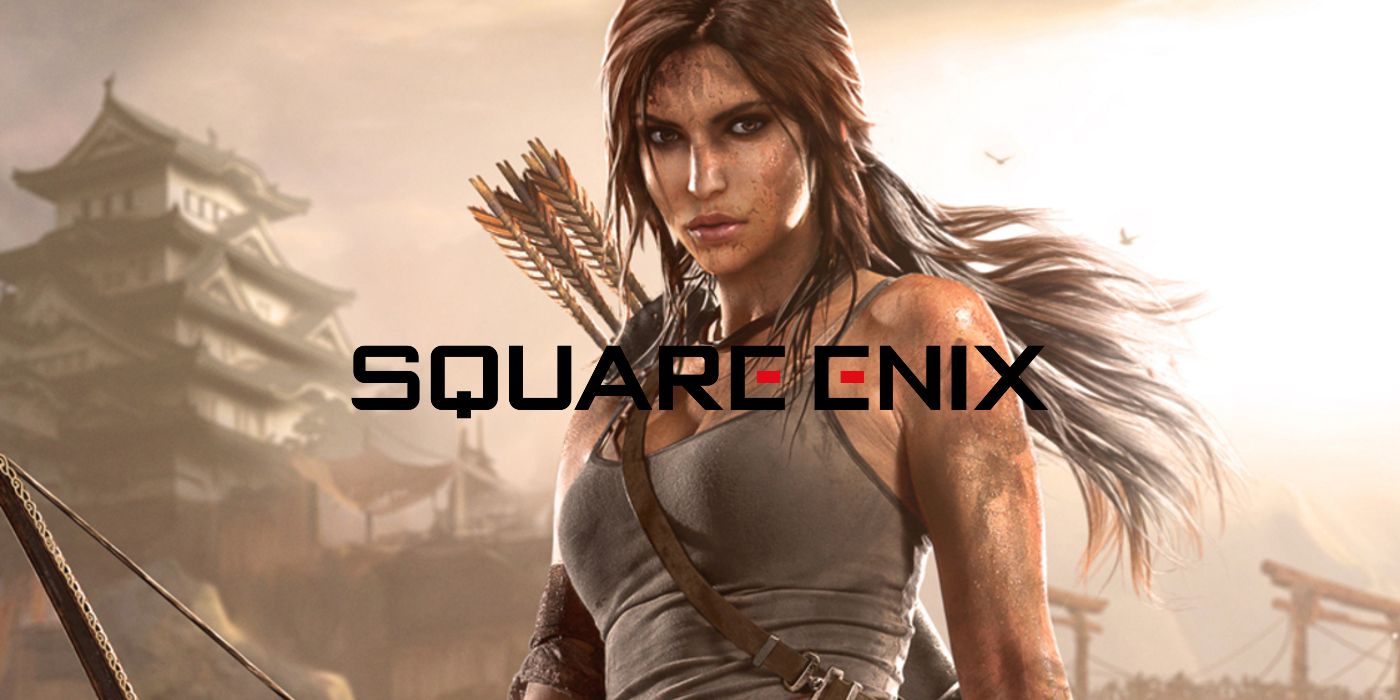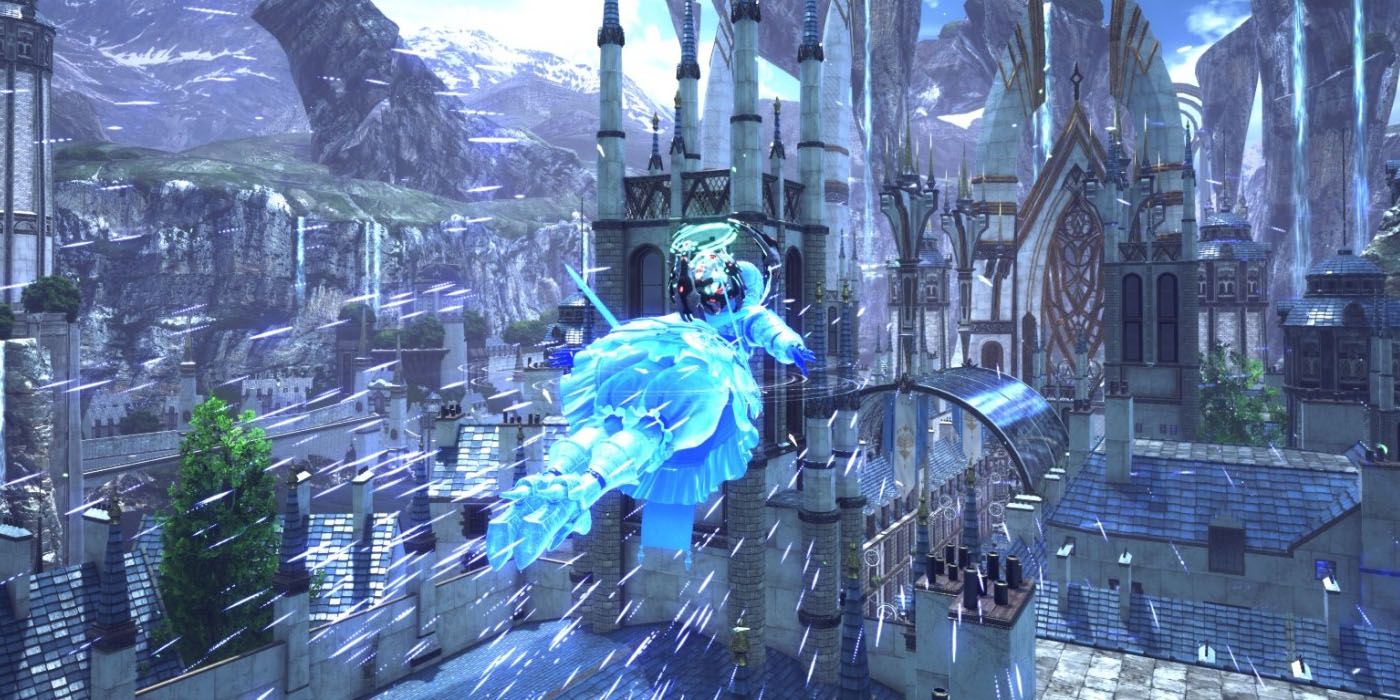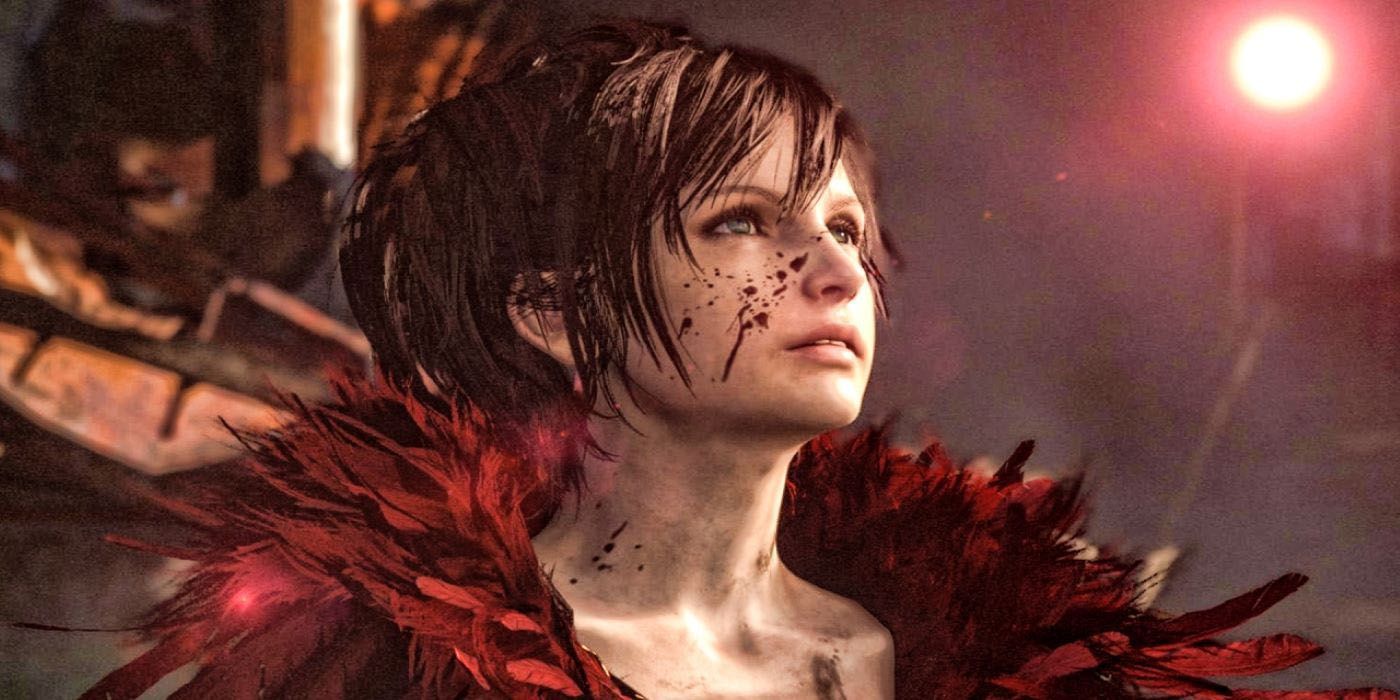The announcement that Square Enix is selling many of its Western studios and gaming IPs like Tomb Raider and Thief came as a surprise to many, given the popularity of some of these franchises. However, Square Enix does not need those products to thrive as a publisher, as it can simply renew its focus on the type of games that originally defined the company. Gaming series like Deus Ex, Thief, and Tomb Raider all have established fanbases, but they never comfortably meshed with the Japanese IPs that brought Square Enix success in the past - most notably JRPG series like Dragon Quest and Final Fantasy. The former remains Japan’s premier RPG series, while in the West Final Fantasy's popularity beats Dragon Quest. Both series have received new mainline installments and spinoffs alongside the Western-developed products published by Square Enix. Streamlining the company means its other IPs, including Enix franchises like Star Ocean and Valkyrie Profile, and Square game series like SaGa and Front Mission, can receive more attention now, which would be good news for genre fans.
Though some fans were skeptical of the 2003 merger of Enix and Square, companies that had previously competed in the JRPG space, the union was at least a logical one. The two leaders in JRPGs, holding their respective flagship franchises, Dragon Quest for Enix and Final Fantasy for Square, became one powerhouse that has easily dominated the genre since that time. Selling off many of the company’s Western studios and assets may encourage it to put more resources behind those genre leaders, as well as opening doors to revisiting more obscure entries from the company’s back catalog, alongside creating new IPs with their distinct style. Recent announcements already support this idea, as Valkyrie Elysium gives Valkyrie Profile a sequel 23-years later. More HD-2D style remakes including Dragon Quest 3 are on the horizon, and the sixth mainline Star Ocean game, The Divine Force, appears to be swinging for the fences with its gorgeous, massive environments.
With Eidos-Montreal and Crystal Dynamics slated for sale to the Embracer Group, Square Enix has more impetus to focus on its own identity. Selling these talented developers along with their high-profile IPs may seem questionable from a business standpoint, but from the consumer perspective, there is less to worry about. While the companies in the industry naturally focus on profitability and shareholders, for fans, the quality and value of its games is all that matters. The best-case scenario from the sale gives IPs like Deux Ex and Legacy of Kain a new lease on life with the Embracer Group, while encouraging Square Enix to return to a focus on making its own internally produced games the best they can be. Some concerns have been raised that the sale could mean the end for Marvel’s Avengers, but that game’s poor reception and sales may have been a key factor prompting the decision to sell in the first place.
Square Enix Needs Renewed Focus On RPG Franchises Like Star Ocean
There are certainly less hopeful outcomes that could come from the sale. A renewed focus on Square Enix’s own franchises, including the return of more obscure IPs like Vagrant Story or Parasite Eve, would be ideal for genre fans. Some troubling signs point elsewhere, such as Square Enix president Yoshida Matsuda’s rambling letter which detailed vague plans to pursue NFTs in gaming. Voicing an intent to push NFTs reflects a serious disconnect with the consumer market. NFTs leverage a blockchain-based sequence to make one piece of data, which is functionally identical to any other copy, digitally authenticated as unique or original. An over-reliance on microtransaction-focused, always online games, like Marvel's Avengers, could pose problems for Square Enix, but NFTs are far worse. Some fans have pointed out that the company president’s letter goes against Final Fantasy 7’s message, and makes modern Square Enix seem more like the fictional Shinra Corporation than ever before. Outside of a few speculative investors in the unproven gimmick, NFTs are mostly viewed negatively, and their harmful environmental impact makes the Shinra comparison appropriate.
Square Enix would be better served making its new games reach the standards of its previous classics, instead of wasting resources on an unpopular fad whose bubble may have already burst. The company can use the sale to establish a better balance of honoring its past, as with the recent Chrono Cross remaster, building on its legacy, like with the new Valkyrie Profile, and creating original IPs, like the games developed by Tokyo RPG Factory, which include Lost Sphear and Oninaki. Enix's Star Ocean and Namco’s Tales series both started on the Super Nintendo and shared many of the same developers. Where Tales has thrived over its numerous entries to become a JRPG series nearly on par with Dragon Quest and Final Fantasy, Square Enix has put less of its resources behind Star Ocean. It is possible the new Star Ocean could learn from Tales of Arise, the Tales series’ most well-received entry in years, and return to its former glory as well.
There are many ways Square Enix can work to regain its reputation in the industry. Using any portion of the projected $300 million from the sale of its Western developers for NFT-related products is not among them. Square Enix has already proven it is capable of doing justice to its core products and delivering quality games. Dragon Quest 11 was among the best JRPGs of its generation, and the quirky Nier series has built a larger fandom than the Drakengard franchise that spawned it. Recent original HD-2D games like Triangle Strategy and Octopath Traveler have provided fresh titles that exemplify classic gameplay and aesthetics, and the HD-2D Dragon Quest 3 will introduce a new generation of fans to one of the very best 8-bit RPGs. Since its revamp Final Fantasy 14 has won numerous gaming awards for its quality expansions, and FF14 was so popular Square Enix stopped selling it for a period of time.
Square Enix Can Repair Its Reputation Or Worsen It With NFTs
Even absent the split focus from its Western-developed products, there are the ongoing microtransaction-driven mobile games drawing resources away from polished console and PC experiences. The last thing Square Enix needs now is to waste resources and further damage its reputation by committing to NFTs. Even after the sale, Square Enix will retain a few Western IPs, including Life is Strange and Just Cause. The loss of popular franchises like Tomb Raider and Deus Ex is noteworthy, but it puts the company at a juncture: Square Enix can either renew its focus on the type of games that made the company popular in the first place, or they can squander any remaining goodwill by putting profit first and attempting to monetize NFTs, instead of trusting in the quality of its games to resonate with the market.



